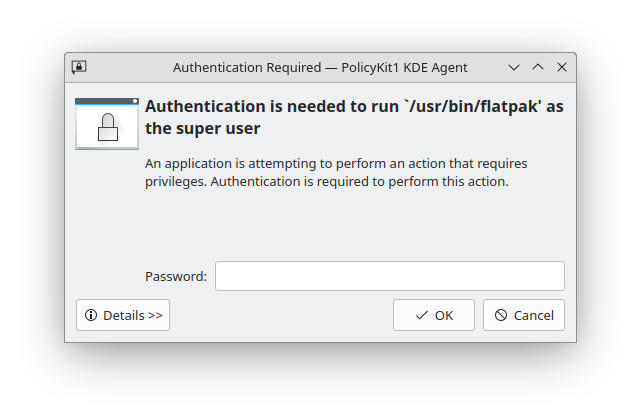I am pretty new to linux so please excuse any foolish mistakes.
I am trying to manually install gpu-screen-recorder(GSR) to get rid of an annoying password prompt that I can't seem to disable in the flatpak version. I know there must be some way to do it because this prompt didn't show up on Pop!_OS, but maybe it's just not possible on Nobara KDE/Fedora. I noticed in the install.sh of GSR, that setcap cap_sys_admin+ep is called on the executable. So if you know any way of replicating something like that for flatpaks that is simpler than installing GSR manually, feel free to let me know.
I tried checking the dependencies listed, but was unable to figure out how to really make sure they are installed and accessible for GSR.
For example: I tried checking for libglvnd by running dnf list libglvnd. Sure enough, it returns
Installed Packages
libglvnd.i686 1:1.6.0-2.fc38 @anaconda
libglvnd.x86_64 1:1.6.0-2.fc38 @anaconda
But then I tried checking for mesa, so I ran dnf list mesa. But it returned
Available Packages
mesa.src 23.2.1-1.fc38 nobara-baseos
mesa.src 23.2.1-1.fc38 nobara-baseos-multilib
It says 'available packages', so not installed, right?
Well, glxinfo -B says I am using mesa 23.2.1, so it seems to be installed, I guess?
So, just assuming I had everything necessary, I cloned the repo and tried to just run install.sh. However, of course I get an error message: wayland-scanner: command not found.
I am a bit confused because I am running on wayland, and checked using loginctl show-session 1 -p Type.
How do I properly make sure the dependencies are available?
